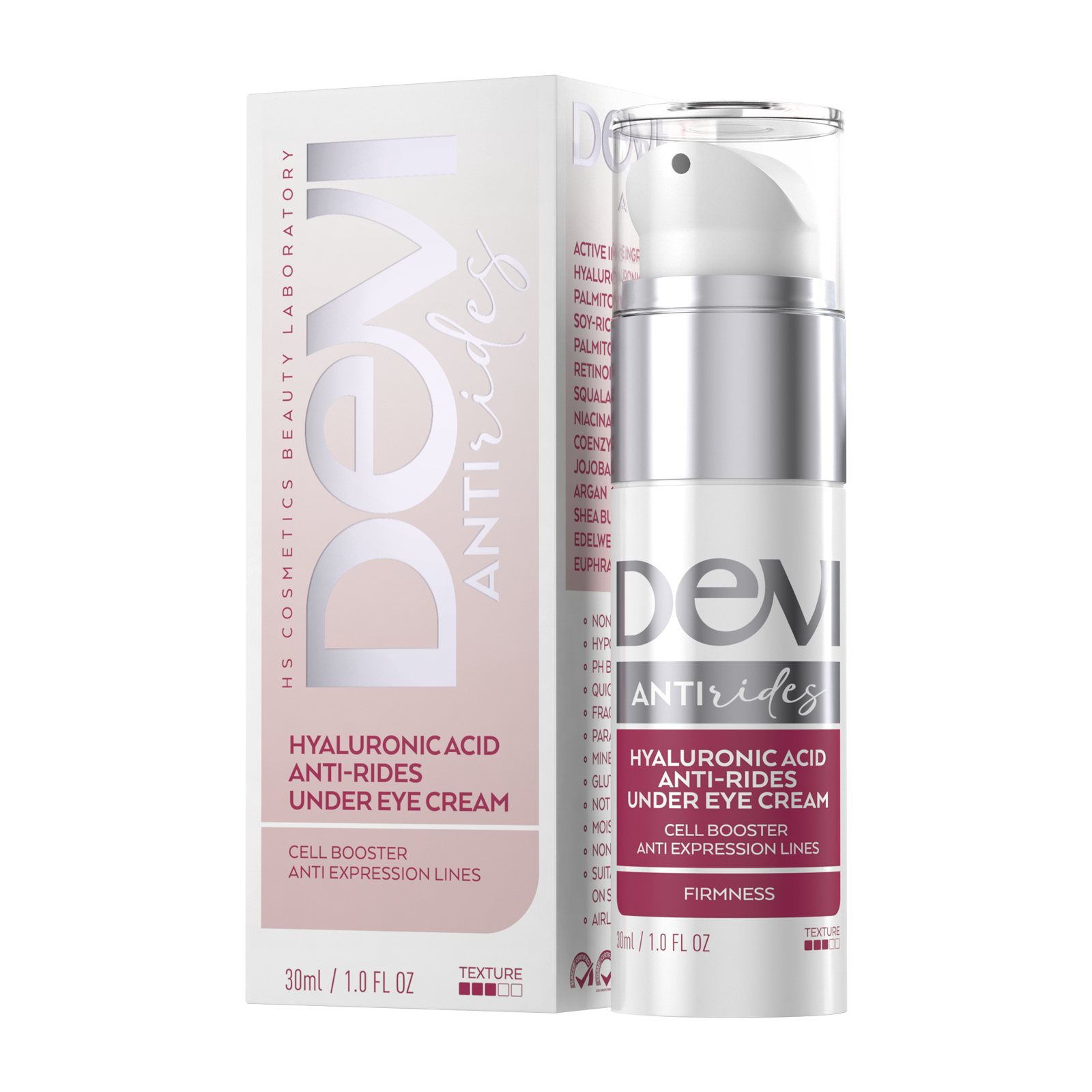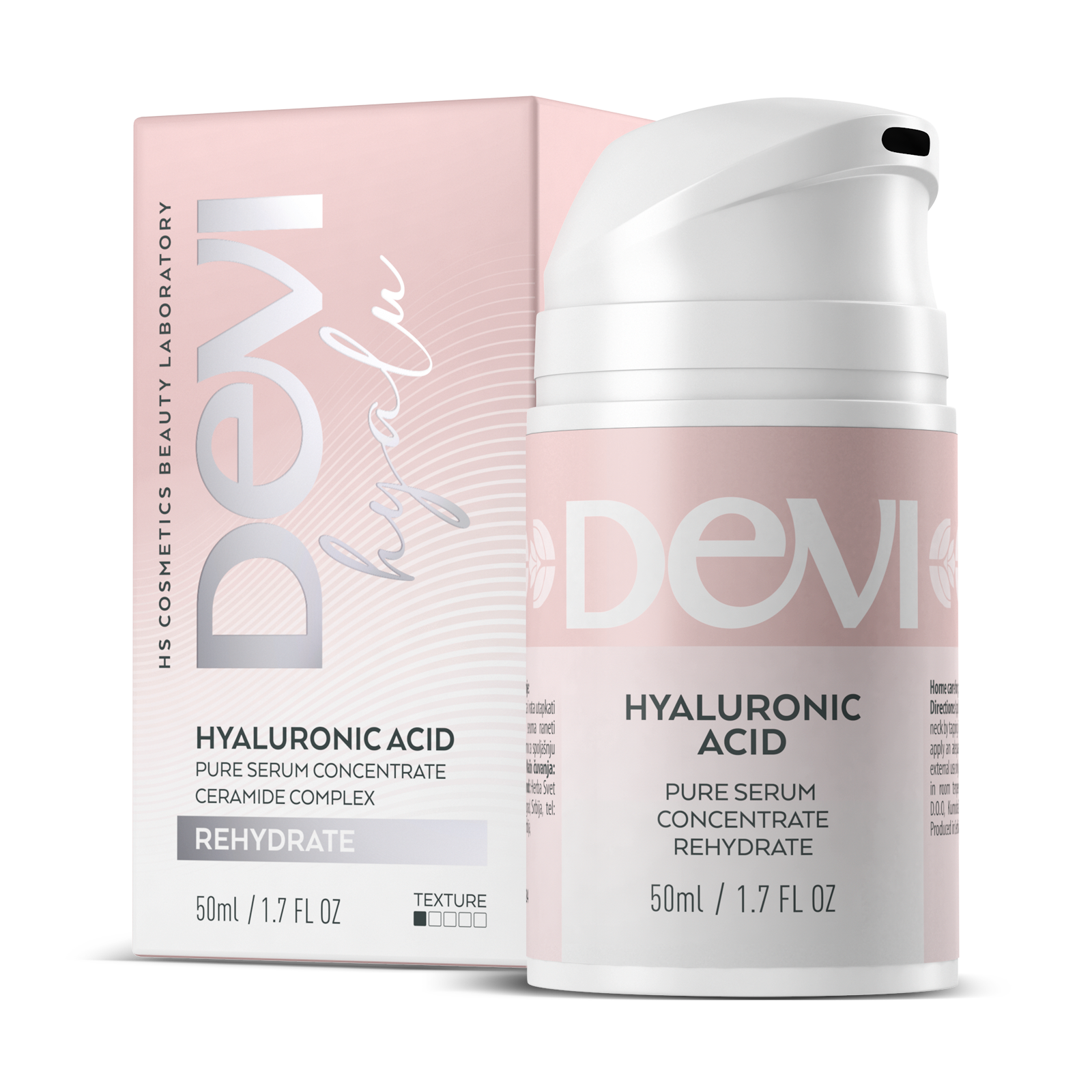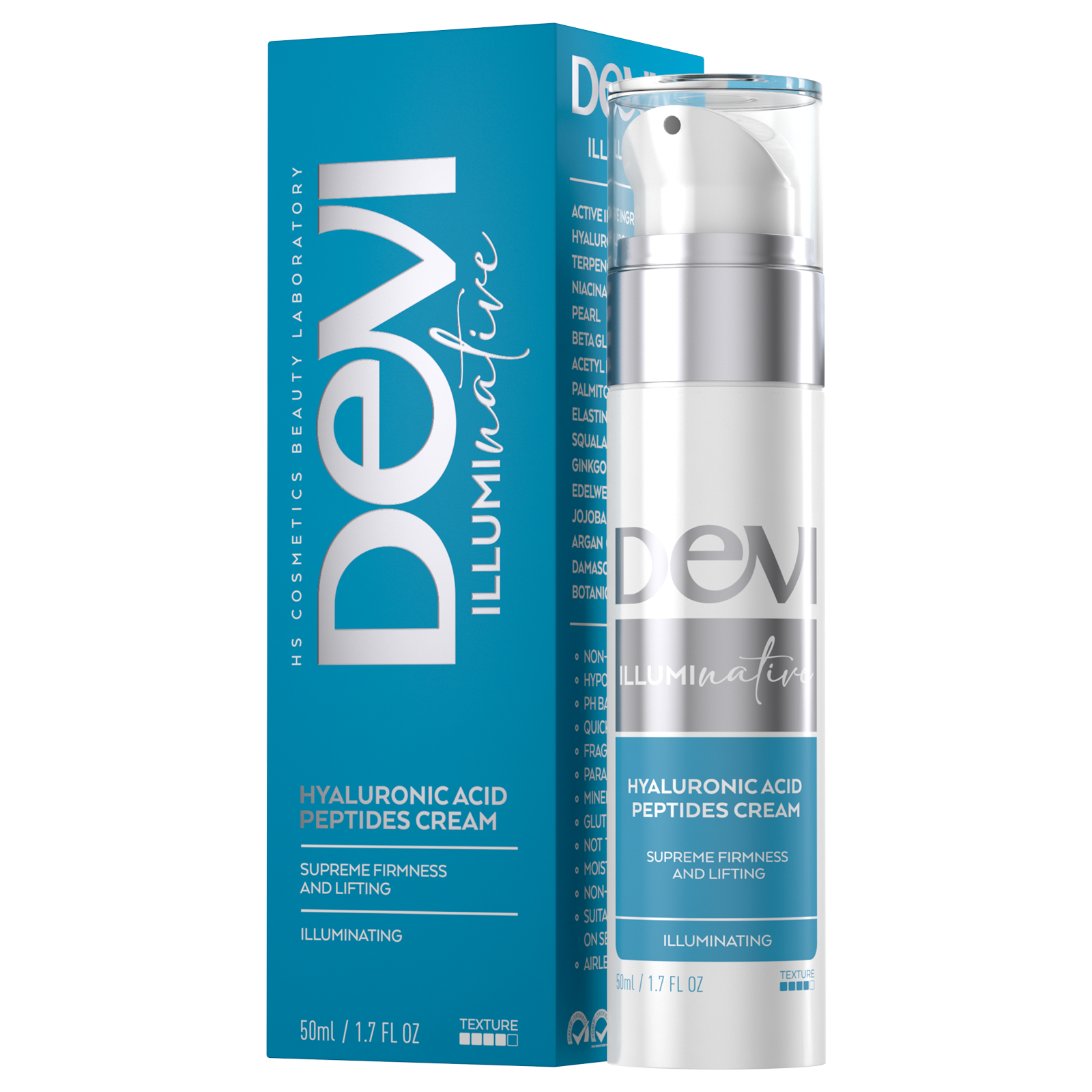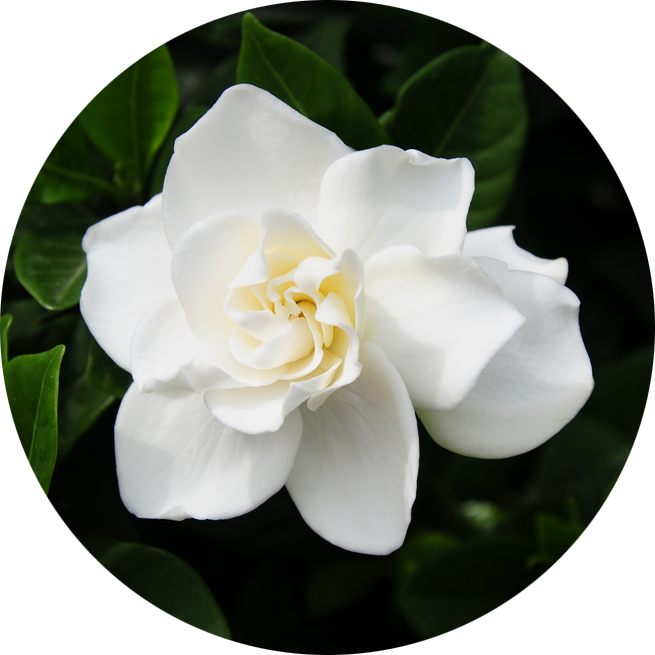(Gardenia jasminoides)
Gardenia – an exotic, evergreen plant with shiny leaves and beautiful, elegant and intoxicating white flowers – comes from southeast Asia. This eastern bushy beauty requires a lot of moisture and a temperate climate throughout the year; in Europe, we can grow it in pots that are kept outdoors in the summer, moderately exposed to the sun, and are brought indoors in winter to protect it from frost. It requires a bit of extra effort, but it is definitely worth it: this beautiful plant is a blessing for the senses because it smells beautiful, is tasty and decorative, but also medicinal.
Gardenia was named after Alexander Garden, a Scottish physician and naturalist, who collaborated with Carolus Linnaeus, the “father of taxonomy”. It belongs to the Rubiaceae family, which includes coffee in addition to numerous other plants. The gardenia fruit contains crocin, a carotenoid, thanks to which it has been used in the Far East since ancient times as yellow dye for textiles. Today it is also used as colour for paper, cosmetics, leather and even food.
Its beauty and delicacy have always been associated with the spiritual world, so this plant is a symbol of pure allure, calm, harmony and spirituality. Its flower lifts the spirits and creates positive energy, which is why its use is appreciated during meditation. It is believed that the gardenia flower can connect us with our own dreams and the messages they convey and help us in the process of self-examination, reflection and deepening of awareness. As a symbol of purity and peace, it is a mandatory part of wedding bouquets.
In addition to being beautiful, the gardenia flower is juicy and delicious. It can be eaten fresh or fermented, and a special delicacy is gardenia-infused honey. Fresh and clean petals are placed in a jar, covered with honey and left for a couple of weeks in a warm place. The jar should be turned occasionally so that the honey permeates all the petals. Thereafter honey should be strained (if necessary, it should be warmed slightly beforehand by immersing the jar in warm water). This fragrant honey can be used to sweeten porridge, lemonade or tea, it can be used as a bread spread or a spoonful of it can be eaten which will introduce an abundance of antioxidants from both honey and gardenia into our body. Gardenia reduces inflammation, helps stabilise blood insulin levels, prevents insulin resistance and protects the liver.
GARDENIA PREVENTS INFLAMMATION
Gardenia jasminoides is one of over 200 varieties of this plant. In addition to white flowers, these varieties can also have flowers of different coulour: yellow, orange, pink or red. But still, the classic white gardenia has many special medicinal properties: anti-hyperglycemic, anti-atherosclerotic, anti-inflammatory, anti-arthritic, anti-carcinogenic, anti-apoptotic, antioxidant, anti-angiogenic, anti-thrombotic, antimicrobial… Some of the phytochemicals that contribute to these properties are geniposide, genipin, geniposidic acid, crocin and crocetin.
This plant has been used since time immemorial in its home country to calm inflammation; modern science has proven that it was completely justified, precisely thanks to genipin, an aglycone that has anti-angiogenic properties – it reduces the unwanted growth of blood vessels and inhibits the production of nitric oxide, a free radical that is responsible for the onset of inflammatory processes that can lead to serious diseases, such as multiple sclerosis. Gardenia reduces oxidative stress, which also has a neuroprotective effect, so it is a great preventive measure against Alzheimer’s disease.
Gardenia is a great protector of the liver. Its hepatoprotective effect is mainly due to the glycoprotein, which improves liver functions, but also has an antioxidant effect. It has an equally beneficial effect on the digestive organs: ursolic acid and crocin regulate acidity and thus prevent gastritis, prevent the spread of Helicobacter pylori, and with their antioxidant effect additionally prevent stomach cancer.
The anti-inflammatory effect of geniposide and crocetin is particularly significant in arthritis. Iridoid glycosides have performed well in clinical studies, so it is believed that in the future they could be used more for the treatment of inflammation and joint pain. The calming of inflammation also has a positive effect on allergic rhinitis, which gardenia prevents by inhibiting periostin.
Gardenia also has antimicrobial action – this plant has been shown to be effective against strains of Staphylococcus aureus, Enterococcus faecalis, Streptococcus pyogenes, Bacillus cereus, Escherichia coli, Salmonella typhi, Proteus vulgaris, Pseudomonas aeruginosa and Candida albicans.
IT IS ESPECIALLY USEFUL FOR THE SKIN
The healing properties of gardenia are especially evident when it comes to our largest organ – the skin. First of all, in accordance with its favourable effect on the digestive tract, gardenia has the ability to regulate the intestinal microbiome, which has been proven to have a favourable effect on skin disorders, such as atopic dermatitis.
Monoterpene glycosides from gardenia have a proven anti-melanoma effect. This plant’s extract has the power to prevent the negative effects of UVB rays on the skin, reduce inflammatory reactions, strengthen the skin’s immunity with its antioxidant effect and thus prevent photo-ageing. Gardenia works at the very root of the problem: it increases fibroblasts and collagen synthesis, builders of the skin’s extracellular structure.
Gardenia extract instantly refreshes the skin, calms and disinfects it, prevents inflammation, and with its favourable effect on the extracellular matrix gives it fullness, elasticity and a youthful appearance. By providing it with UV protection, this plant protects the skin from desiccation, deterioration and pigmentation. That is why it is a valuable addition to anti-ageing cosmetics.
Precisely for all these reasons, gardenia has found its way into Devi cosmetics. Anti-rides Anti Age Cream for the area around the eyes is a powerful fighter against the formation of wrinkles. In addition to coenzyme Q10, triglycerides, peptides and hyaluronic acid, this serum also contains nourishing oils, vitamins and plant extracts that reduce fine lines around the eyes, prevent and reduce hyperpigmentation, lighten dark circles around the eyes and reduce swelling. Botomix Serum provides an intensive skin treatment with peptides, hyaluronic acid and plant extracts and is a natural alternative to Botox. Hyaluronic Acid Serum nourishes, softens and gives elasticity to the skin with hyaluronic acid and ceramide, and Illuminative Cream gives radiance to the complexion, reduces the visibility of wrinkles and strengthens the skin’s immunity. All these creams and serums contain the special energy of gardenia, which endeavours to preserve our health and beauty.




